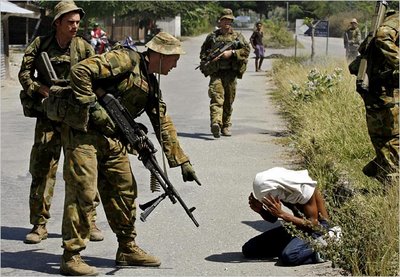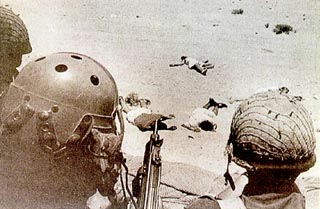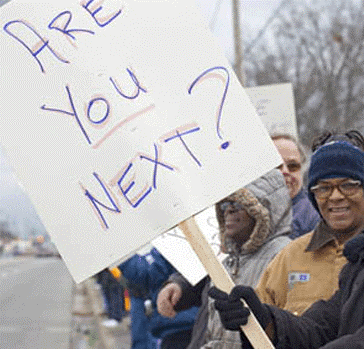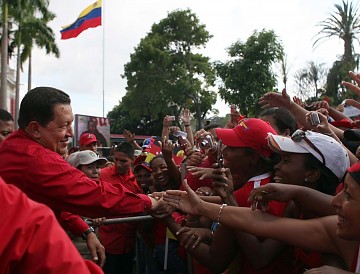Photo: ABN/Prensa Miraflores. View video footage here
President Chávez meets with his people at Miraflores
By Heison Moreno for ABN/YVKE Mundial
Translated by Tim Bowron for The Spark
The head of state celebrated this April 13 together with hundreds of Venezuelans who were out on the streets of Caracas since the early morning. The President told Venezuelans in the opening phrases of his speech that “Venezuela will never be anyone’s colony” and announced the launch of the “Misión 13 de Abril”.
Caracas, Sunday afternoon
The citizens are gathering on Urdaneta Avenue in Caracas to commemorate the civil-military struggle that enabled President Hugo Chávez to return to power six years ago, as a kind of celebration of the recovery of national dignity.
Points such as the corner of Santa Capillas and the environs of the office of the Vice-president of the Republic are again marked by the presence of the people, the same people who in 2002 went out into the streets in order to demand the return of the head of state and the constitution.
Urdaneta Avenue was packed in the early morning with Venezuelan men and women who gathered just like on that previous April 13, to take back their country’s freedom and to sweep away tyranny. The guardians of freedom, members of the misiónes and the general populace gather today to the accompaniment of music by Ali Primera which can be heard even as far away as the Laguno bridge.
The Caracas metro is providing free underground transport so that everyone can mobilise.
Continue reading “6 years on: Venezuelans celebrate defeat of April 2002 coup”




